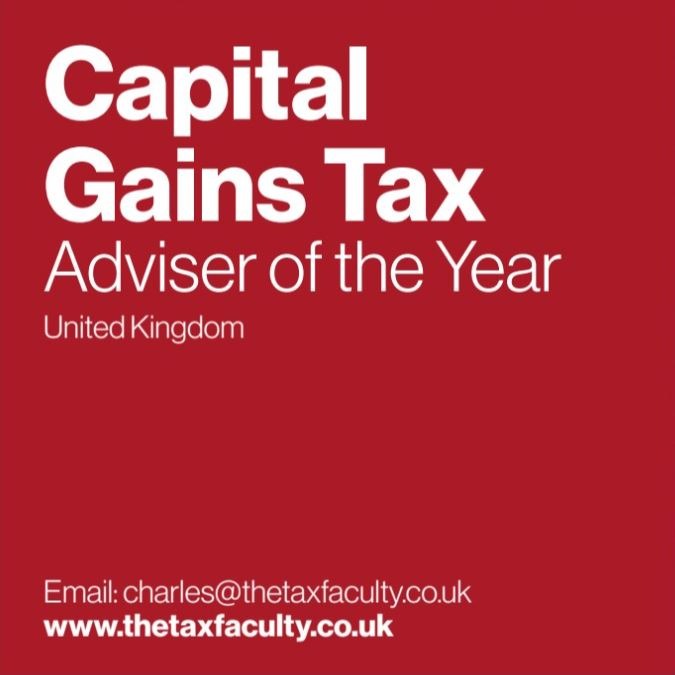TTF Tackles the Money Monster Under Your Bed: Jumping the 9-to-5 Ship and My First Steps Toward Self-Employment
In this edition of TTF Tackled the Money Monster Under Your Bed, we hear from someone standing at the crossroads between employment and self-employment. If you've ever dreamed of being your own boss but felt the creeping anxiety of taxes, cash flow, and financial risk, this honest first-person account might just be the reassurance—and reality check—you need.
FINANCESSELF-ASSESSMENTSELF-EMPLOYMENT
The Tax Faculty
4/16/20256 min read


"I’ve worked in the same business for the past nine years. It's a decent job, with reliable hours, regular pay, and a good team. So, on paper, there's no reason to rock the boat. But recently, something's shifted. More and more, I catch myself wondering what it would feel like to work for myself—to build something that's fully mine, to choose my clients, my hours, and even my coffee breaks.
It started as a daydream during my commute, but lately, it’s turning into something else: a plan.
Don’t get me wrong, I’m nervous—really nervous. I know going self-employed isn’t just about swapping a desk job for a laptop and a flat white in a co-working space. There’s tax, expenses, business structures, invoices, cash flow, marketing, and the uncertainty of not having a guaranteed income each month. That’s the big money monster hiding under the bed for me.
But even with all that, I keep coming back to the same feeling: this might actually be the right move.
The decision isn’t going to be instant. I’m realistic enough to know that jumping ship without a life raft—or a solid financial plan—isn’t a good idea and I really need to get a handle on what to do and when over the next few days, weeks and months.
I appreciate that this transition to self-employment journey might take a while. But for the first time in a long time, I feel excited about what’s next. I’m not just dreaming anymore—I’m planning. And the more I understand about what self-employment actually involves, the smaller the monster under the bed becomes.
To help me gain some clarity, I'd really like to know roughly what to expect as I take the first few steps into self-employment."
Going self-employed is a big leap, but it sounds like you’re doing exactly what you should: asking questions, doing your research, and taking your time to get things right. Since you're starting to plan ahead, here’s a down-to-earth guide on what you can expect from the transition—especially around the tax and money (aka the money monster under the bed).
1. First Things First: Let HMRC Know You’re Going Solo
Once you officially go self-employed, you’ll need to tell HMRC. You can do this online and they’ll give you something called a Unique Taxpayer Reference (UTR). That’s your ID for tax purposes.
This move means your income won’t be taxed through PAYE anymore like it was when you were employed—you’ll be in charge of working out and paying your own tax and National Insurance. It sounds scary at first, but once you get into a routine, it becomes pretty straightforward.
2. Tax and National Insurance – What Changes?
You’ll still pay tax, of course, and you’ll also need to pay two types of National Insurance once you’re self-employed. The main ones are:
Class 2 NIC – a small weekly amount (which is optional if your profits are low).
Class 4 NIC – based on your profits and paid through your tax return.
Don’t worry—you don’t need to figure this out manually. HMRC works it out for you when you file your tax return. But it's worth setting aside some money each month so you're not caught off guard when the bill comes.
3. Keeping Track of Money – It’s Simpler Than You Think
You need to be able to stay on top of things- either yourself or with the help of an accountant. A basic spreadsheet or accounting app could be used. If your business earns under £85,000 a year, you can keep it simple when you file your tax return—just record your income, expenses, and profits.
That said, from April 2026, if your income is over £50,000 a year, you’ll need to start sending quarterly updates to HMRC using software. This is part of something called Making Tax Digital, and it’ll apply to more people as time goes on.
4. VAT – You Might Not Need to Worry About This Yet
VAT only kicks in when your turnover goes over £90,000 in a 12-month period. If you’re under that, you don’t have to register. But some businesses choose to register early if they mostly work with VAT-registered clients—it can actually help with claiming back VAT on expenses.
Again, if you hit that threshold, you’ll need to file VAT returns, usually every quarter. It’s an extra bit of admin, but manageable with the right tools or an accountant.
5. Thinking of Teaming Up? Partnerships Are an Option
If you’re planning to go into business with someone (a friend, partner, or family member), you can set up a partnership. You both share the profits, the responsibilities—and the paperwork. You’ll each still need to do your own tax return, but there’s also one for the partnership itself.
It’s a good idea to get a written agreement in place about who does what and how profits are split, just to avoid confusion down the line.
6. Limited Company vs. Sole Trader – What’s the difference?
You don’t have to start as a limited company—it’s often easier to begin as a sole trader and see how things go. But if your business grows or you want to limit your personal financial risk, you might consider “incorporating” (turning your business into a company).
With a limited company, the business becomes its own legal thing. You’d become a director, pay corporation tax, and take money out as salary or dividends. There are more rules to follow, but also some tax benefits—especially if you don’t take all the profits out right away.
7. And Eventually… You Might Want to Sell or Retire
Okay, you’ve just started thinking about starting a business, not ending one—but it’s worth knowing that if you ever do sell or wind things down, there are tax rules to help you do that in a tax-efficient way. Especially if you’ve built something valuable like a client list, goodwill, or brand.
There’s even a special tax relief (called Business Asset Disposal Relief) that could reduce how much tax you pay when selling your business or shares in a company.


Final Thoughts: Take It One Step at a Time
You’re not expected to know everything from day one. The key is to break this journey into stages:
Decide when to go official – and register as self-employed when you're ready.
Get a simple bookkeeping system in place – so tax time isn't a nightmare.
Learn the basics of self-employed tax – income tax, NICs, and maybe VAT.
Think long-term – maybe a limited company, or even building a team one day.
And remember—you don’t have to do this all alone. An accountant and trusted tax advisor can be worth their weight in gold, especially when you’re starting out and want to avoid surprises.
You’re clearly already on the right track by asking the right questions. So keep learning, plan ahead, and trust your gut—wishing you lots of luck!


Capital Gains Tax Expertise: The Tax Faculty LLP Managing Partner Charles Tateson Named UK Capital Gains Tax Advisor of the Year 2023
The Finance Monthly Taxation Awards recognises the achievements of tax professionals from around the globe.
Winning such an award is no small feat. It is a reflection of hard work, extensive knowledge, and an ability to navigate the intricacies of the UK tax system.
Read more about Charles and the award here.



Contact Us
Contact us today on freephone 0800 0016 878 for a free consultation on all tax issues, or fill out the handy form below and we'll get back to you as soon as possible.
Alternatively, you can email us at info@thetaxfaculty.co.uk or complete the form below.
(Please note, non-UK callers may need to call 0207 101 3845 if your line cannot connect to our 0800 number)
Feel free to contact us through WhatsApp - we accept calls and messages.
Simply click the WhatsApp button below:
The Tax Faculty LLP - info@thetaxfaculty.co.uk
Call us on 0800 0016 878 for a free consultation
Copyright © 2024 The Tax Faculty LLP - All Rights Reserved


